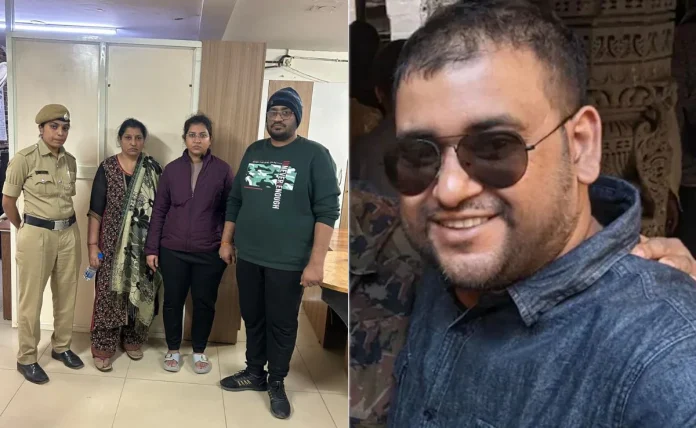December 15, 2024: The tragic death of Atul Subhash, a 34-year-old deputy general manager from Bengaluru, has led to the arrest of three individuals in connection with his suicide. Atul died on December 9, leaving behind a 24-page suicide note in which he accused his wife, Nikita Singhania, and her family of prolonged harassment.
According to the Karnataka police, Nikita was arrested from Gurugram in Haryana, while her mother, Nisha Singhania, and her brother, Anurag Singhania, were arrested in Allahabad, Uttar Pradesh. All three have been sent to judicial custody, as ordered by the court.

Atul’s suicide note paints a disturbing picture of his life, in which he alleges significant emotional and legal abuse at the hands of his wife and her relatives. He claims that Nikita and her family had filed multiple legal cases against him, including charges of murder, sexual misconduct, domestic violence, dowry harassment, and more. The note also includes an accusation that a judge had demanded a bribe of ₹5 lakh to “settle” the case.
The police investigation has revealed that Atul had been under immense stress due to the numerous legal cases filed by his wife, which left him feeling “broken from inside,” according to his father, Pawan Kumar. Atul’s father shared that his son had often expressed frustration over the corruption he faced in his legal battles, yet he remained committed to fighting for what he believed was right. Despite his resolve, Atul appears to have felt increasingly isolated and overwhelmed by the mounting pressures.
Atul’s suicide has sparked public outrage, particularly regarding the alleged abuse of legal systems and the misuse of laws intended to protect women. His father, in an emotional statement, said that his son had become disillusioned with the legal process, which he believed was skewed against him, and that the harassment was taking a heavy toll on him.
The investigation is ongoing, and the arrests of Nikita and her family members have drawn significant attention to the case. Many are questioning the potential abuse of legal protections meant to shield individuals from domestic violence, but which in some cases may be exploited for personal gain. As the case continues to unfold, it has highlighted the serious mental and emotional consequences of such prolonged harassment, leading to calls for reform in how domestic disputes are handled by the legal system.


